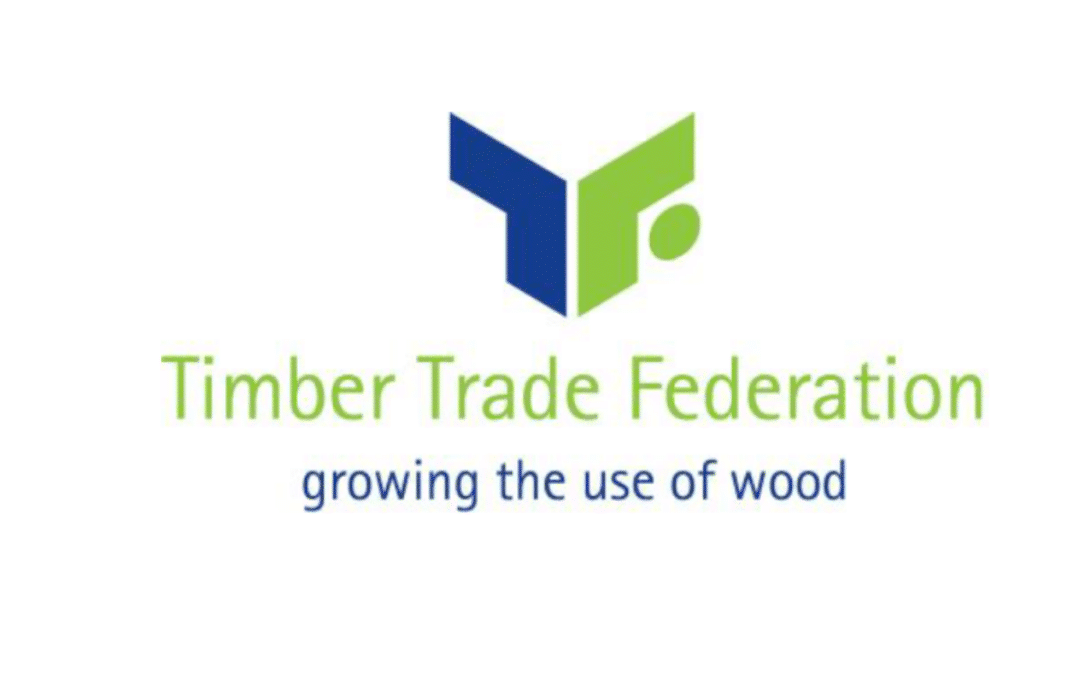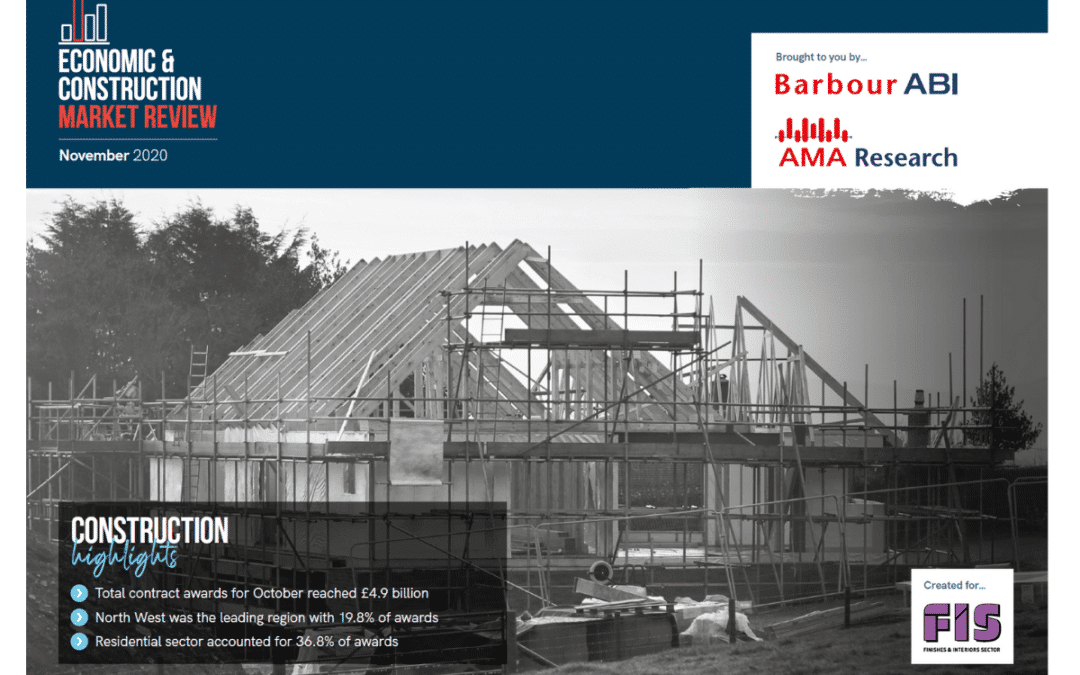
by Clair Mooney | Jan 4, 2021 | Main News Feed
CSCS published its Annual Review in December 2020 containing ‘Highlights and Accomplishments’ and ‘Priorities for 2021’, for full details please visit CSCS_Annual_Review_2020_final.pdf Here is a summary of the areas we feel are applicable to FIS members.
Industrial Accreditation (Grandfather Rights)
From 1 January 2020 all cards renewed under Industrial Accreditation, also known as Grandfather Rights, will expire on 31 December 2024 and CSCS will stop issuing renewal cards under Industrial Accreditation from 30 June 2024. What each Industrial Accreditation card holder needs to do next depends on their occupation and any qualifications they may already hold.
Registration checks at site entrances
Through 2021 CSCS is developing a system that aims to ensure all cards can be electronically checked at the site gates using one system that is compatible with all cards displaying the CSCS logo. In addition automated qualification checks will be a major development for the scheme, not only speeding up the application service but also preventing fraudulent certificates from passing the application process.
Online application
To improve the service to industry, online card registrations went live in December 2019. Applying for a card online is considerably quicker and more convenient than any other means of application. The service is now open 24 hours a day, 7 days a week, all year round
Continuing Professional Development
The recommendations set by the Grenfell Competence Steering Group and the final report Setting the Bar include the introduction of Continuing Professional Development (CPD) and ensuring the workforce hold the correct qualifications for the job they do on site. As detailed in this Annual Review, change, designed to keep everyone safe by making it easy to identify competence through qualification achievement, is coming.
For the Finishes and Interiors Sector these changes to CSCS may reduce the size of the available labour pool in the short term until individuals have the necessary qualifications to register for the a card that will ensure the criteria of specific contracts and social responsibility can be met. To support employers FIS has a network of Approved Training Providers and access to offers and discounts on training and qualifications for FIS members. To access this network and available support click here.
Everyone working in construction is aware of CSCS and the need to register individuals, but did you know CSCS is owned by the construction industry for the construction industry? CSCS is managed by a board of non-executive directors, a chairman and nine members. The Board also works with other card schemes and organisations not represented on the CSCS Board to share ideas that help drive the scheme forward to meet the wider needs of industry. If you would like FIS to bring any points, comments or observations to the attention of the CSCS please send us the details and we will ensure these get presented through the appropriate channel.

by Clair Mooney | Dec 16, 2020 | Main News Feed
“Build the Future” is the theme for the 2021 National Apprenticeship Week (NAW), which will take place between 8 – 14 February 2021. NAW aims to encourage everyone to consider how apprenticeships can help individuals to build the skills and knowledge required for a rewarding career.
The annual week-long celebration of apprenticeships, now in its fourteenth year, takes pleace across England and will showcase the impact apprenticeships can have on communities, local businesses and regional economies and how they all benefit from the impact of apprenticeships.
To support National Apprenticeship Week 2021, individuals, employers, training providers and communities are being encouraged to get involved, to celebrate apprenticeships and how they:
TRAIN apprentices, and future proof their workforce and careers though apprenticeships;
RETAIN apprentices, gaining the skills and knowledge needed by the business, and seeing apprentices thrive, whilst having impact;
ACHIEVE a real return on investment from apprentices; realising the business benefits of apprenticeships, with apprentices progressing in their chosen careers.
A toolkit is available now to support the apprenticeship community with planning their activity for National Apprenticeship Week 2021.
If you have any questions please email: The.Week@education.gov.uk
For updates on National Apprenticeship Week and the campaign follow National Apprenticeship Service on our social media channels:
Twitter: @Apprenticeships
Twitter: @FireItUp_Apps
Instagram: @fireitupapps
Facebook: FireItUpApps
LinkedIn: National Apprenticeship Service
The Week Hashtags: #NAW2021 #BuildTheFuture
For more information on apprenticeships visit: www.apprenticeships.gov.uk

by Clair Mooney | Dec 15, 2020 | Main News Feed
On Wednesday, 9 December Education Secretary Gavin Williamson MP, announced the first major details of the Lifetime Skills Guarantee.
The Lifetime Skills Guarantee was originally announced by the Prime Minister in September and provides fully funded qualifications to adults without a full qualification at level 3.
Almost 400 level 3 qualifications, including for the finishes and interiors sector; Decorative Finishing – Painting and Decorating, Bathroom Installation Skills, Kitchen Installation Skills, Interior Systems Ceiling Fixing, Plastering, Wall and Floor Tiling, Testing, Inspecting and thorough Examination Occupations – Installing Construction Anchors and Site Testing of Construction Fixings, Occupational Work Supervision, Wood Occupations – Site Carpentry, Bench and Architectural Joinery and Design, Engineer, Construct The Digital Built Environment, will be available free to eligible adult learners in England from April 2021. The qualifications will enable tens of thousands of adults to get the skills they need to improve their career prospects and progress in employment. The courses are backed by £95 million of funding from the £2.5 billion National Skills Fund.
This commitment by the Government to inject funding into tertiary education to ensure the country can bounce back from the COVID-19 pandemic is great news for the construction industry. Construction is one of the sectors that will benefit most from the Lifetime Skills Guarantee and the courses that will receive funding cover a wide range of trades.
Given the potential impact of the pandemic on apprenticeship provision across construction, this new support will help young people to continue to progress their learning in FE. The challenge will be to ensure that learners on FE courses are work ready to enter industry.

by Clair Mooney | Dec 15, 2020 | Main News Feed
The Scottish government has issued a new Procurement Note – 10/2020 – “Measuring social impact in public procurement”. The policy note serves to clarify the Scottish Government’s policy on measuring social impact through procurement and support for application of this policy in the form of the sustainable procurement duty tools and accompanying guides.
Key Points
- the Scottish Government does not endorse monetary gauges to measure social impact in procurement as part of the procurement process;
- social impact is not fixed or easily transferable. Impact arises from the interaction between supply and demand, and therefore will be specific to the individual, community, and place. Public bodies must engage with communities who have an interest in the contract to get the best possible outcome;
- care should be taken to ensure that impact measurements do not create a barrier to businesses;
- success in contributing to Scotland’s purpose is measured in terms of outcomes. These outcomes align to the National Performance Framework and the UN Sustainable Development Goals; and
- this approach complements procurement principles of relevance and proportionality and Scottish legislation to rule out price only or cost only as the sole award criteria for public contracts.
More information is available at – Measuring social impact in public procurement: SPPN 10/2020 – gov.scot (www.gov.scot)

by Clair Mooney | Dec 11, 2020 | Main News Feed
Planned to take place from 27-29 January, the aim is to replicate a physical careers fair, virtually. You can visit a wide range of organisations and get advice and support to manage careers and how to take first steps towards them.
The National Careers Service is inviting organisations to take part, and each organisation will have its own ‘stall’. You can choose what to present and how to engage with the audience. Suggestions include:
- Live Q&As
- ‘Day in the life’ streams
- A virtual or live stream tour of your organisation
- A top tips, Frequently Asked Questions webinar
The event will run over three days:
- Wednesday 27 January – For national organisations with opportunities for people across the country.
- Thursday 28 January – For organisations with a more regional audience.
- Friday 29 January – A virtual jobs fair during which regional teams will promote local vacancies and learning opportunities.
If you would like to get involved, please email national.careersservice@education.gov.uk by midday 18 December. The National Careers Service will then give you further details and support. They may need to operate on a first come first served basis, so please register your interest as soon as you can!

by Clair Mooney | Dec 11, 2020 | Main News Feed
To help reduce the transmission of coronavirus on construction sites, Build UK has partnered with Eurofins to offer a comprehensive
COVID‐19 testing service. Testing is most effective when undertaken in line with a regular schedule; however, it does not replace the need for social distancing or compliance with the Site Operating Procedures. Eurofins is offering both Polymerase Chain Reaction (PCR) and Lateral Flow testing on site at exclusive prices for Build UK members and, to discuss your requirements, please
contact Eurofins.

by Clair Mooney | Dec 11, 2020 | Main News Feed
Business owners affected by the pandemic will be protected from eviction until the end of March 2021. This final extension to protections from the threat of eviction will give landlords and tenants three months to come to an agreement on unpaid rent. Further guidance to support negotiations between landlords and tenants will also be published shortly. A review of commercial landlord and tenant legislation has also been announced, to address concerns that the current framework does not reflect the current economic conditions. More information is available
here.

by Clair Mooney | Dec 11, 2020 | Main News Feed
Temporary relaxation of the enforcement of the drivers’ hours rules: delivery of essential items to retailers
In response to pressures on local and national supply chains, the Department for Transport has introduced a temporary and limited urgent relaxation of the enforcement of EU drivers’ hours rules in England, Scotland and Wales. This temporary relaxation will apply from 12:01am on 10 December 2020 and will run until 11:59pm on 30 December 2020.
Find out about who the relaxation applies to and information on using the relaxation here.

by Clair Mooney | Dec 10, 2020 | Main News Feed
The Timber Trade Federation is advising all timber users and buyers to strengthen their purchasing strategies in dialogue with their suppliers, as a lack of stock on the ground and tight supply conditions are set to continue well into 2021.
The very challenging situation for the timber supply chain in 2020, affected by pandemic-related issues and massive changes in market dynamics, and exacerbated by high levels of global demand for timber and wood products, is setting the scene for continuing tight timber supply conditions certainly into Q2, 2021, if not longer, warns the Timber Trade Federation.
Early in the pandemic many European sawmills were temporarily shut. Lockdowns across the UK and Europe then produced a massive surge in demand for timber for DIY and garden projects, which began to impact supplies through to Britain’s construction sector. Additional high demand for structural timbers, particularly CLS and carcassing, from across Europe and especially from the USA, has also affected the amount of material available in traditionally well-stocked markets such as the British builders’ merchant sector.
With demand continuing at a high level into 2021, there has been no ‘quiet season’ in Britain’s building trade, and thus little opportunity for sawmillers and importers to replenish stocks on the ground here in the UK to their previously-plentiful levels.
COVID-19 is still producing spikes in cases, such as that recently seen in the UK’s largest timber-supplying partner, Sweden, where an increase in cases has resulted in a tightening of operating conditions and delays where vessel crews are required to self-isolate. Import logistics, especially with the end of the Brexit transition period and the new arrangements with the Republic of Ireland and Northern Ireland, may add further pressures on supplies, as the timber sector will need to compete with many other industries in obtaining road haulage capacity within the UK.
To ensure available material is distributed equitably, many Timber Trade Federation members are continuing to operate on customer allocations. Volumes are likely to be available but on much longer lead times than previously. Merchants, manufacturers and building contractors are advised to contact their supplier to discuss future needs, and similarly to become more aware of the factors influencing suppliers’ capacity to meet demand. Companies without a longer-term purchasing strategy will struggle to replenish stocks through just-in-time buying in Q1 and Q2, 2021.
David Hopkins, Chief Executive of the Timber Trade Federation, said: “Pre-COVID, timber buyers were used to their being plentiful landed stocks available to meet immediate demand. Suppliers were also used to having time over traditionally quite periods in the trade to re-build stocks for the following season. This situation has now been turned on its head. It is understandable that many customers should be surprised by, and angry about, the new reality we are facing together. The reported price inflation has also made it difficult for some manufacturers to accurately price projects for customers.
“We would like to reassure the wider sector that volume supplies are available, though on much longer lead times than we have all been used to. This situation will be with us well into 2021 so we advise contacting your suppliers to discuss meeting your needs for the year ahead. The challenge going forward will be to achieve the balanced product mix needed by the market, a factor which may be further complicated by the haulage demands and new customs and plant health procedures engendered by Brexit.”

by Clair Mooney | Dec 10, 2020 | Main News Feed
HSE has made available its most popular courses online.
The online courses still allow for direct dialogue with experts, a high level of interaction with the other attendees, and lots of opportunities to ask questions, just as you would in a normal training environment. Printed course material will be delivered direct to your door.
Courses include:

by Clair Mooney | Dec 10, 2020 | Main News Feed
There are over 5,000 asbestos-related disease deaths each year caused by health conditions including mesothelioma, lung cancer and asbestosis.
Whether you’re a tradesperson, building owner, licensed contractor, or a member of the public, it’s vital to recognise asbestos-containing materials and know what to do so you can protect yourself and others.
You can visit the HSE asbestos website to make sure you’ve got the appropriate information, instruction and advice. Ots Asbestos essentials publication can be downloaded for free and covers the actions needed to reduce exposure to an adequate level.

by Clair Mooney | Dec 10, 2020 | Main News Feed
The new
Test to Release for International Travel scheme will come into force on
15 December for passengers arriving into England from a destination not on the
travel corridor list. Under the scheme, you can choose to pay for a COVID‐19 test from a private provider after five days of self‐isolation, with a negative result meaning you do not need to isolate further.
Business directors bringing ‘significant economic benefit’ to the UK have now been added to the list of jobs that qualify for travel exemptions, meaning they do not need to self‐isolate on arrival in the UK.

by Clair Mooney | Dec 4, 2020 | Main News Feed
CITB would value employer input on the proposed content and implementation approach for a new Training Standard on basic fire safety. CITB is currently working as part of the Competence Steering Group, designed to tackle the shortcomings identified in the Hackitt Review after the Grenfell fire. The consultation on Basic Fire Safety runs from 23 November – 11 December. Please share your views here.

by Clair Mooney | Dec 4, 2020 | Main News Feed
CITB is changing its apprenticeship support to enable all levy-registered construction employers to benefit from an expanded support service. Currently, CITB offers employer and apprentice support for its 7,000 contracted apprenticeships, about a third of the total number across the industry. Under the new plans, throughout 2021, CITB will withdraw from the direct, funded delivery of apprenticeships in England, and instead provide a support service to all employers with construction apprentices. Funded apprenticeship support will continue in Scotland and Wales, and the wider offer will also apply in those nations.
Support for employers will include help accessing grants; choosing the right apprenticeship standard and the right training provider; guidance through the Government’s online apprenticeships system; and building partnerships with colleges and training providers. CITB will continue to offer recruitment support to employers who recruit large numbers of apprentices each year.
FIS is happy to support employer members apprenticeship needs.

by Clair Mooney | Dec 2, 2020 | Main News Feed
In the wake of growing concerns over immigration in 2021 and the impact of tighter rules on the finishes and interiors sector, trade body FIS, supported by Seddons Law LLP, Indigo Group, Lignum Group and Bamboo Project Solutions hosted a webinar explaining how companies should react.
At the FIS AGM (24th November 2020) it was revealed in data provided by economist Dr Noble Francis that EU workers had since 2018 fallen by 40% to Q3 2020, accelerated by a return home linked to COVID this year. New data from the FIS indicates that 30% of members are already experiencing labour shortages and 62.5% are concerned for what the New Year brings. FIS has been raising these concerns with Government and continues to lobby for a more phased approach to the new points based system.
The challenge for the finishes and interiors sector:
- The Shortage Occupation List: The common issue for all of construction is the lack of recognition on the Skills Shortage list.
- The Skilled Worker List: Vital trades across construction are lost in catch-all “other” categories and have been overlooked in the definition of Skilled Worker (e.g. Drylining and Ceiling are included in SOC8149 Construction Workers Not Elsewhere Classified).
- High Reliance on Flexible Workforce: Contractors in our sector operate in a project lead, phased trade environment and as a consequence of the nature of work and procurement practices relies heavily on contingent workers, this is not well recognised in the new system.
The webinar now freely available online here outlined how the new points based system will operate and how companies should start preparing for initial changes in January, followed by further tightening in June 2021. The event also warned of new company responsibilities and growing concerns about the potential for abuse of the system through modern slavery.
FIS continues to lobby government on these issues and has a meeting, with colleagues from the wider construction sector and the Home Office on the 4th December. If you haven’t completed our labour market survey before this point, please do so here.
The FIS has set up a dedicated section on immigration in their Brexit Toolkit here.

by Clair Mooney | Nov 27, 2020 | Main News Feed
Build UK has worked with the CIPS to publish a detailed report on the impact of the UK leaving the EU on the supply of construction materials from 1 January 2021. The report identifies whether materials may be in short supply or have longer lead times and it will be regularly updated. Whilst no material is currently identified as being high risk, early engagement with suppliers and manufacturers is strongly recommended to avoid delays and disruption.

by Clair Mooney | Nov 27, 2020 | Main News Feed
HSE has published advice explaining alternative ways of working to reduce risk which may mean you no longer need to use respiratory protective equipment (RPE) for working with power tools.
We have guidance explaining the control measures employers should consider when dealing with (RPE) supply issues during the pandemic.
The new webpage on power tools outlines control measures, including using alternative ways of working, to reduce the risk of exposure to hazardous substances. There is advice on working with tools such as:
- power or masonry drills
- cut-off saws
- handheld pneumatic breakers or jackhammers
- core drills
- angle grinders
Putting in place improved control measures may mean that you no longer need to use RPE or can use RPE with a lower assigned protection factor (APF).
For all the latest information and advice around workplace health and safety during the pandemic visit the HSE coronavirus website at www.hse.gov.uk/coronavirus/

by Clair Mooney | Nov 26, 2020 | Main News Feed
Construction Sector
A new report produced for FIS Members by Barbour ABI indicates that the total value of construction contract awards in October was £4.9 billion based on a three month rolling average. This is a decrease of 9.4% on September and follows three consecutive months of good growth (see fig. 2.3). Annual comparison shows it is also 1.1% lower than for October 2019. In the three months to October 2020, total contract awards were valued at £14.7 billion which is 75.7% higher than for the previous quarter and is also 1.3% higher than for the comparable quarter ending October 2019.
There was an increase of 8.7% for contract award numbers this month at 871 compared to September. Annual comparisons show marginal (0.8%) improvement.
Project by Region
The North West was the leading region in October with 19.8% of awards and a total of 120 projects. The second largest region was London with value share of 13.8%, whilst tying for third place was the East of England and Scotland both with 11.1% of awards (see fig. 2.2).
Cumbria was the location for the largest contract award in October which was the £175 million Woodhouse Colliery Cumbrian Deep Coal Mine and which was awarded to Hargreaves Services. The second largest award this month was the £126.7 million Gull Wing Lake Lothing Third Crossing in Lowestoft and the successful contractor was Farrans Construction. The One City Road Redevelopment in Manchester was the third largest award at £121.4 million which was awarded to Marshall Construction (West Yorkshire).
Types of Project
The residential sector maintained its leading position in October accounting for 36.8% of contract awards and 202 projects. Underpinned by some major civils awards, infrastructure was the second largest region this month with 22.2% of awards and 131 projects. Accounting for 14.3% of awards and 148 projects, the commercial and retail sector was the third largest in October.
The leading residential award was the £94 million Strawberry Place development in Newcastle upon Tyne which will include 328 flats as part of a mixed use development and was awarded to Tolent Construction. The Metallurgical Coal Project Woodhouse Colliery was the largest infrastructure project valued at £175m which will see the development of a new Cumbrian deep coal mine. The largest commercial and retail award this month was the £121.4 million One City Road Redevelopment
in Manchester where Marshall Construction (West Yorkshire) will provide 48,570 sq m of new office space.
FIS members can read the full report here.

by Clair Mooney | Nov 26, 2020 | Main News Feed
The Construction Products Association’s economics team has analysed the government’s ‘Spending Review 2020’ released today. As expected, the focus of the announcement has primarily been on aiding the recovery from the virus and furthering support for public services. Compared to strong statements from government earlier in the year around “build, build, build”, we have much less to go on today.
That said, with our forecasts showing that infrastructure will be one of the few bright spots for UK construction in the coming year, we are pleased to finally see that government has listened to the CPA and that the National Infrastructure Strategy has some of the detail we’ve long been calling for around the government’s project plans, funding and the path to net-zero. Together with the spring 2021 launch of a new National Infrastructure Bank, we have reason to be encouraged that government is taking real steps, beyond simple headlines, in delivering an infrastructure sector that truly underpins UK construction and the wider economy.”
Announcements relevant to construction and manufacturing are summarised here (FIS members only).

by Clair Mooney | Nov 26, 2020 | Main News Feed
The Shadow Minister for Housing and Planning, Mike Amesbury MP, highlighted the Construction Products Associations’ (CPA) and questions about product testing regimes post-Brexit on the floor of the House of Commons this week in a debate with the Housing Minister about the Construction Products Regulations.
CPA has been in frequent and productive discussions with MHCLG to clarify these points, but have concerns in particular about whether many products presently made in the UK will be legally allowed for sale on the UK market post-Brexit, as they might not be able to be tested and/or proven to conform with the regulatory requirements. Despite this very late stage of the transition period, with only 1.5 months to spare, it remains unclear if the current free trade negotiations with the EU will conclude matters of mutual recognition. Find out more.



















